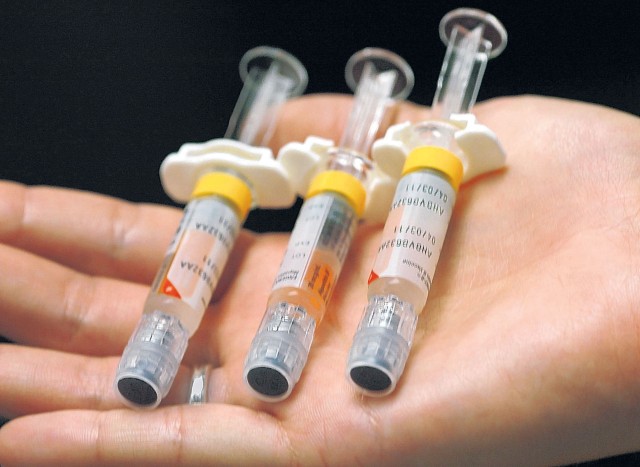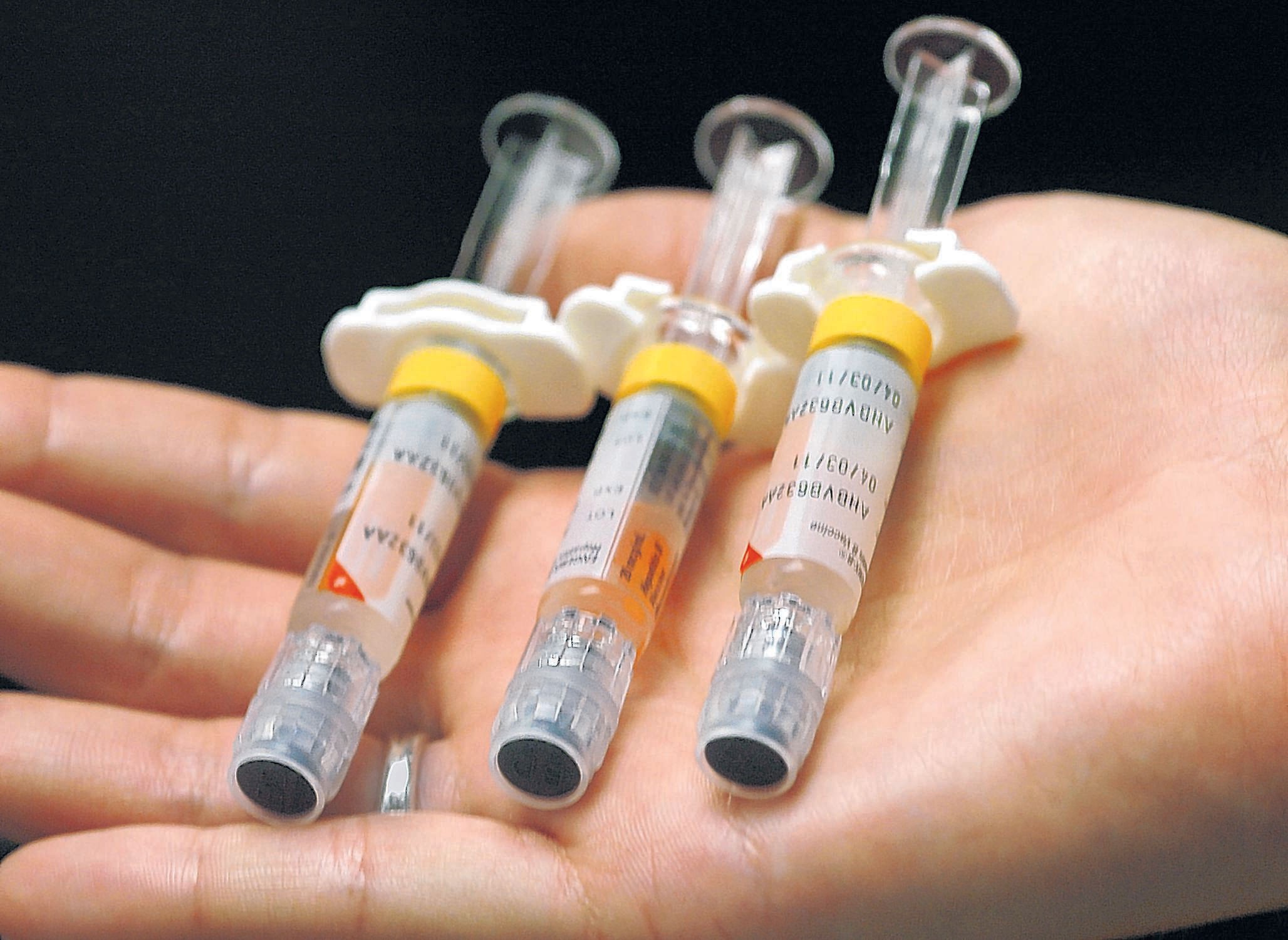FORT BELVOIR, Va. -- Health care providers from DeWitt Army Community Hospital begin administering seasonal influenza vaccines Wednesday at the Fort Belvoir Community Center.
Only beneficiaries of the hospital - active-duty members, retirees and family members - can receive either the FluMist or injectable vaccines.
FluMist is for ages 2 to 49 with no chronic health problems, while injectables are for people at high risk - for example, those older than 49 or who have diabetes, asthma, heart disease, cancer, etc. - and are not eligible for the FluMist.
In response to increased concerns surrounding this year's flu season as a result of H1N1 pandemic earlier this year, DeWitt is also working closely with the Virginia Department of Health to begin H1N1 immunizations in October.
The VDH anticipates having enough vaccine to immunize everyone who wants to protect themselves against the new flu strain. However, the federal Centers for Disease Control and Prevention recommends H1N1 vaccination for pregnant women, children, health-care workers and emergency medical service providers.
To date, more than 2,000 Virginia physicians, clinics, pharmacies, retail stores and other vaccine providers have pre-registered for the state's H1N1 vaccination program, including DeWitt. More information about vaccination dates for H1N1 will be released as it becomes available.
"As we prepare for the fall flu season, we are taking reasonable and prudent steps to help control transmission of the H1N1 virus in Virginia. We will continue to focus on activities that will keep Virginians safe and healthy, especially susceptible groups, such as children as they return to school," said Gov. Timothy M. Kaine in a Tuesday press release.
Though many people are concerned about H1N1, CDC and DeWitt officials urge people to get the seasonal flu shot early to prevent co-infection with both seasonal and H1N1 flu.
"Our primary concern is that people understand the significance of receiving both seasonal flu and H1N1 vaccinations to prevent co-infection," said Lt. Col. Leonardo Martinez, chief of Preventive Medicine at DeWitt. "We do not want people contracting both viruses."
Each year, an average of 36,000 people die from flu-related complications and more than 200,000 people are hospitalized from flu-related causes in the United States, according to the CDC. Of those hospitalized, 20,000 are children younger than 5. More than 90 percent of deaths and about 60 percent of hospitalizations occur in people older than 65.
In comparison, the H1N1 flu virus is different, as it seems adults older than 64 years are not at increased risk. CDC laboratory studies show one-third of adults older than 60 may have antibodies that fight against H1N1, though it is unknown how much protection older people have against novel H1N1 flu by any existing antibodies.
The seasonal flu vaccine is not expected to protect against the 2009 H1N1 flu. Similarly, the 2009 H1N1 influenza vaccine will not protect against seasonal influenza.
"We cannot stress enough the importance of getting your seasonal flu and H1N1 vaccinations as they become available," Martinez said. "Flu seasons are unpredictable, but the increased risk of contracting both is one people need to take very seriously."
Continue looking for updates in the Belvoir Eagle and on the DeWitt Web site, dewitt.wramc.amedd. army.mil. People can also call the DeWitt Flu Hotline, 703-805-0506 for more information.


Social Sharing